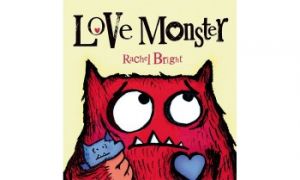Right from the earliest years, outdoor experiences are an invaluable aspect of healthy human growth. Engaging with the outdoors and nature helps even babies to develop fully, realise their physical and intellectual potential as well as bond with the surrounding environment.
Here are a few more ideas to help you plan outdoor play for babies.
Being
Outdoor play provides babies with many opportunities for free movement like grasping objects, kicking legs, crawling. These along with observing others run and play help in their physical development. Spending time in the sun and fresh air gets them used to the difference between night and day, leading to healthier sleep patterns. Some ways you can help babies get the maximum developmental benefits with outdoor play are:
• Providing them things to push and pull such as balls, large hollow blocks, besides hanging things to reach, grasp or kick
• Helping them explore open-ended materials like a short ribbon or a spoon in their own way; give them objects to grasp, poke, bang, squeeze and shake
• Giving them access to sturdy items like logs, ledges that they call pull on as well as soft ground to fall back onto
Becoming
There is so much in nature and the outdoors that can help babies develop their sensory, cognitive and even emotional faculties. As babies touch sand, grass, dirt or leaves, they are exposed to a wide sensory diet and they also build stronger immunity. You can further facilitate ‘becoming’ experiences by giving babies
• different surfaces to crawl on, such as grass, wood, pavers, rubber, straw matting
• natural objects, such as leaves, feathers, flowers, herbs, grass, smooth river stones for varied sensory experiences
• opportunities for water play and sand play to help them explore different elements
• the chance to listen to and observe wind chimes and mirrors
• emotional and social interactions as you imitate sounds and describe objects from nature; then listen and respond to them as the babies repeat back and express themselves
Belonging
Playing in the outdoors further helps babies to develop a sense of belonging to their surrounding environment. It not only fosters wonder at so many stimuli and curiosity to know more about them but over time, as they begin to recognize objects and people, it also builds the foundation for lasting love and respect for the natural environment.
Safety concerns
Babies should play in the outdoors always under adult supervision. In order to help babies make the most of outdoor play, see that they are safe and free from harm. To do this, remember to:
• remove sharp, dangerous objects as well as anything smaller than a D-size battery that can be a choking risk if put in the mouth.
• dress them in protective clothing like broad brim hats, loose-fitting, lightweight long sleeves and pants.
• Have them play only in the shade and avoid going out in the afternoons
• see that the baby’s heads, hands and feet are covered when they are out on a cold day.
Reference:
Babies and Outdoor Play


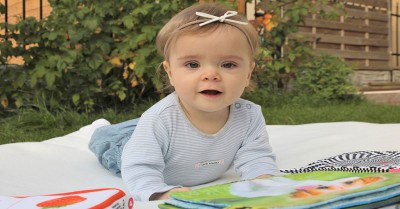
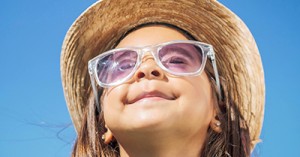
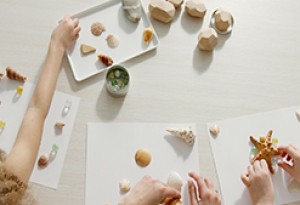
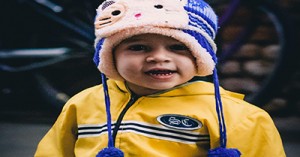

 As an Educator in Australia, your pay rate falls under the Children’s Services Award 2010. This award states the minimum amount that an employer can
As an Educator in Australia, your pay rate falls under the Children’s Services Award 2010. This award states the minimum amount that an employer can When working as a qualified Early Childhood Teacher (with a university degree) within a service, your rate of pay will come from the Educational Services
When working as a qualified Early Childhood Teacher (with a university degree) within a service, your rate of pay will come from the Educational Services When working as a Diploma Qualified Educator your pay rate is from the Children's Services Award 2010. This Award states your minimum rate of pay
When working as a Diploma Qualified Educator your pay rate is from the Children's Services Award 2010. This Award states your minimum rate of pay When working as a Cert 3 Qualified Educator, your pay rate is from the Children's Services Award 2010. This Award states your minimum rate of
When working as a Cert 3 Qualified Educator, your pay rate is from the Children's Services Award 2010. This Award states your minimum rate of Educational Leaders play a crucial role in their early childhood service by ensuring that the educational program aligns with best practices and supports the holistic
Educational Leaders play a crucial role in their early childhood service by ensuring that the educational program aligns with best practices and supports the holistic In early childhood education and care, ratios are more than a technicality—they are a frontline safeguard. Every child deserves responsive supervision, emotional connection, and developmental
In early childhood education and care, ratios are more than a technicality—they are a frontline safeguard. Every child deserves responsive supervision, emotional connection, and developmental With the new national child safety reforms kicking in on 1 September 2025, early childhood services like yours have a real opportunity to lead the
With the new national child safety reforms kicking in on 1 September 2025, early childhood services like yours have a real opportunity to lead the Here’s a comprehensive Mobile Phone and Smart Watch Policy tailored for early childhood education and care (ECEC) services in Australia, aligned with the latest 2025
Here’s a comprehensive Mobile Phone and Smart Watch Policy tailored for early childhood education and care (ECEC) services in Australia, aligned with the latest 2025 The Sea of Fish Challenge is a national initiative that invites children, educators, families, and communities to create and display fish artworks as a symbol
The Sea of Fish Challenge is a national initiative that invites children, educators, families, and communities to create and display fish artworks as a symbol Across the early childhood education and care sector, educators are sounding the alarm: current staffing ratios are insufficient to deliver safe, meaningful, and developmentally appropriate
Across the early childhood education and care sector, educators are sounding the alarm: current staffing ratios are insufficient to deliver safe, meaningful, and developmentally appropriate
